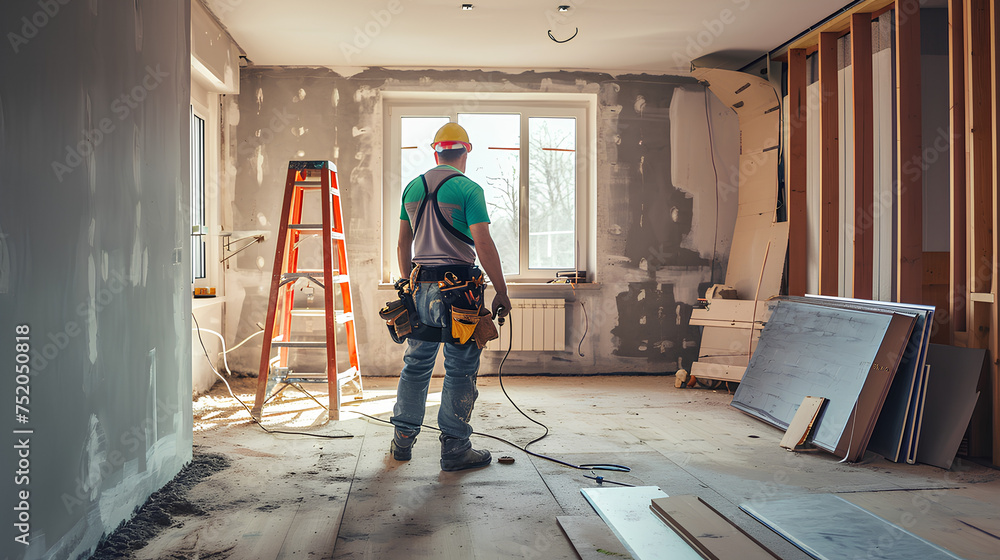Hiring the right contractor is crucial for the success of any home improvement project. Verifying a contractor’s credentials and references ensures that you hire a qualified, trustworthy professional who will complete your project to the highest standards. Here’s a comprehensive guide on how to verify a contractor’s credentials and references.
1. Verify Licensing and Insurance
Check State and Local Licensing- State Licensing Board: Contact your state’s licensing board or visit their website to verify that the contractor holds a valid license. Licensing requirements vary by state and often include passing exams and meeting specific experience and education criteria.
- Local Permits: Ensure the contractor has the necessary permits to work in your local area. This may involve contacting your city or county building department.
- General Liability Insurance: Verify that the contractor has general liability insurance to cover any damage to your property during the project.
- Workers’ Compensation Insurance: Ensure the contractor has workers’ compensation insurance to cover injuries to workers on your property. Request a copy of the insurance certificate and confirm its validity with the insurance provider.
2. Review Professional Certifications and Affiliations
Industry Certifications- Trade Certifications: Look for industry certifications that demonstrate a contractor’s expertise in specific areas, such as Certified Remodeler (CR) or Certified Kitchen and Bath Remodeler (CKBR).
- Manufacturer Certifications: Some contractors may have certifications from manufacturers for installing specific products, which can be an added assurance of their expertise.
- Memberships: Check if the contractor is a member of professional associations, such as the National Association of Home Builders (NAHB) or the National Association of the Remodeling Industry (NARI). Membership in these organizations often indicates a commitment to professionalism and ongoing education.
Join HICP Homeowner’s Alliance
Connect with experts, get special discounts and enjoy member benefits
3. Check Business Reputation and Stability
Online Reviews and Ratings- Review Websites: Visit websites like Yelp, Google Reviews, and the Better Business Bureau (BBB) to read reviews and ratings from past clients. Look for patterns in the feedback to gauge the contractor’s reliability and quality of work.
- BBB Ratings: The BBB provides ratings based on factors such as complaint history and business practices. A high BBB rating is a positive sign.
- Years in Business: Verify how long the contractor has been in business. Longevity can be an indicator of stability and experience.
- Business Address: Ensure the contractor has a verifiable business address. Be wary of contractors who operate out of a P.O. box or do not have a physical office.
4. Verify References
Request References- Ask for References: Request a list of references from the contractor, ideally from projects similar to yours. A reputable contractor should be willing to provide this information.
- Contact References: Contact the references provided and ask detailed questions about their experience with the contractor.
- Project Details: Ask about the scope of the project, the timeline, and the final cost.
- Quality of Work: Inquire about the quality of the workmanship and whether the project was completed to their satisfaction.
- Communication: Ask how well the contractor communicated throughout the project and if they were responsive to questions and concerns.
- Timeliness: Check if the project was completed on time and within budget.
- Issues and Resolutions: Ask if there were any issues during the project and how the contractor addressed them.
- Site Visits: If possible, visit some of the contractor’s past projects to see the quality of work firsthand. This can provide a better sense of the contractor’s capabilities and attention to detail.
5. Review Contracts and Documentation
Written Contracts- Detailed Agreements: Ensure the contractor provides a written contract that clearly outlines the scope of work, materials, timelines, payment schedules, and warranties.
- Change Orders: The contract should include provisions for handling change orders, specifying how changes to the project will be documented and approved.
- Itemized Estimates: Review the contractor’s project proposal and ensure it includes itemized estimates for all aspects of the project. This transparency helps prevent misunderstandings and hidden costs.
6. Monitor Certifications and Training
Ongoing Education- Continuing Education: Verify that the contractor and their team participate in ongoing education and training to stay updated on the latest industry standards and practices.
- Safety Training: Ensure the contractor follows safety protocols and has received proper safety training to minimize risks on the job site.
- New Methods: Ask if the contractor uses modern construction techniques and technology, which can improve efficiency and quality.
7. Trust Your Instincts
Initial Impressions- Professionalism: Pay attention to the contractor’s professionalism during your initial meetings. Are they punctual, organized, and respectful?
- Clear Communication: A good contractor should be able to explain the project details clearly and answer all your questions satisfactorily.
- Trust and Comfort: Trust your instincts about the contractor. If something feels off or if you’re not comfortable with their answers, it’s better to continue your search.
Verifying a contractor’s credentials and references is a crucial step in protecting your home improvement investment. By thoroughly checking licensing and insurance, reviewing professional certifications and affiliations, assessing business reputation, verifying references, reviewing contracts, monitoring ongoing education, and trusting your instincts, you can ensure that you hire a qualified, reliable contractor. Taking these steps will help you achieve a successful home improvement project with high-quality results and peace of mind.




















